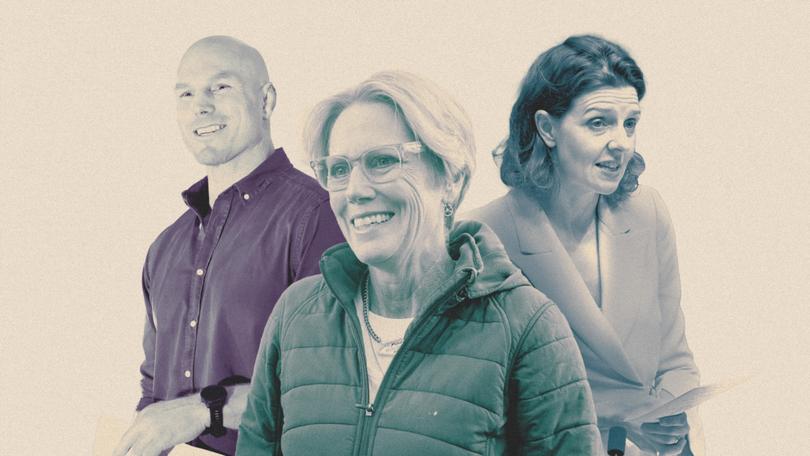Greens flex their muscle as Senate power shift dilutes Independents’ influence
Labor’s landslide majority may mean it has to rely only on Greens support in the Senate to pass legislation, shifting the balance of power further from independents who were influential in the previous term.

Labor’s landslide majority may mean it has to rely only on Greens support in the Senate to pass legislation, shifting the balance of power further from independent crossbenchers who were influential in the previous term.
The final Senate and House of Representatives numbers are still shaking out but the Greens are confident they will hold the keys to Government success in the upper house even if they lose seats, including that of leader Adam Bandt, in the lower house.
Independent crossbenchers also insist they have a larger public mandate that will grant them sway in the direction of new laws.
Sign up to The Nightly's newsletters.
Get the first look at the digital newspaper, curated daily stories and breaking headlines delivered to your inbox.
By continuing you agree to our Terms and Privacy Policy.“The Greens are going to be holding the balance of power in our own right in the Senate, and we’ll be pushing for the things that people have really called for,” said South Australian Senator Sarah Hanson-Young told ABC Radio National Breakfast.
“More people across the country voted for the Greens or other minor parties and independents than in any other time in history,” she said, adding that the major party vote had hit new lows.
The Greens planned to use their influence to meet the electorate’s demands for progressive reforms on climate and the environment, adding dental treatment to Medicare, and urgent housing policy, she said.
Although counting is still underway, Labor is projected to increase its Senate seats from 24 to 28, while the Coalition could lose four of its previous 30 and the Greens are expected to retain 11 seats.
The potential new make-up of the Senate has the potential to reduce the clout of independents like ACT Senator David Pocock, who held the casting vote over several key pieces of legislation in the first Labor term.
But Mr Pocock, a popular second term Senator who outpolled Finance Minister Katy Gallagher on Saturday, told The Nightly that the swing towards independents across the country showed the “election result is not a vote for the status quo.”
He said he expected the government to engage in good faith with the crossbench on big ideas and fundamental structural reform.
“I’ll certainly continue to push on the things I’ve been I’ve been pushing on,” he said, pointing to the “dire” housing situation, a plan for homelessness and reforms on capital gains and negative gearing as a priority.
Ben Oquist, a political strategist at DPG Advisory Solutions, said the Government had to recognise its low primary vote of about 34 per cent meant public support for the crossbench and the Greens had risen even if it had not translated into lower house seats.
“The public has moved. The Parliament doesn’t fully represent that, but I think that gives them power that comes from their voice and their advocacy,” he said.
The final tally of independent crossbenchers is projected to land between 10 and 18, with most, or possibly all, of the teal independents retaining their seats, defying suggestions they could be one-hit wonders.
“Over the last three years I have shown I can work across the parliament and shift the national agenda without the balance of power,” said Allegra Spender, MP for Wentworth.
“I’ve helped stand up for small business, drive stronger action on climate, a better deal for women and the LGBTIQ+ community, and brought tax and economic reform into the national spotlight,” she said.
Ms Spender argued that with the Coalition “in disarray,” the independents “would be critical to holding the government to account while continuing to be a constructive force in the parliament.”
Kate Chaney, who held her WA seat of Curtin, said that time would tell if Labor’s bigger majority would produce “ambition or arrogance.”
But she added that she would keep “working constructively to drive longer-term thinking and hold the government to account” on housing, climate, tax and productivity that take more than three years to fix.
“Governments need to be pushed to show some courage and look beyond the electoral cycle,” she said.
“I’ve built constructive relationships across the House in the last Parliament and will certainly have more influence on policy than a Liberal backbencher would.”

